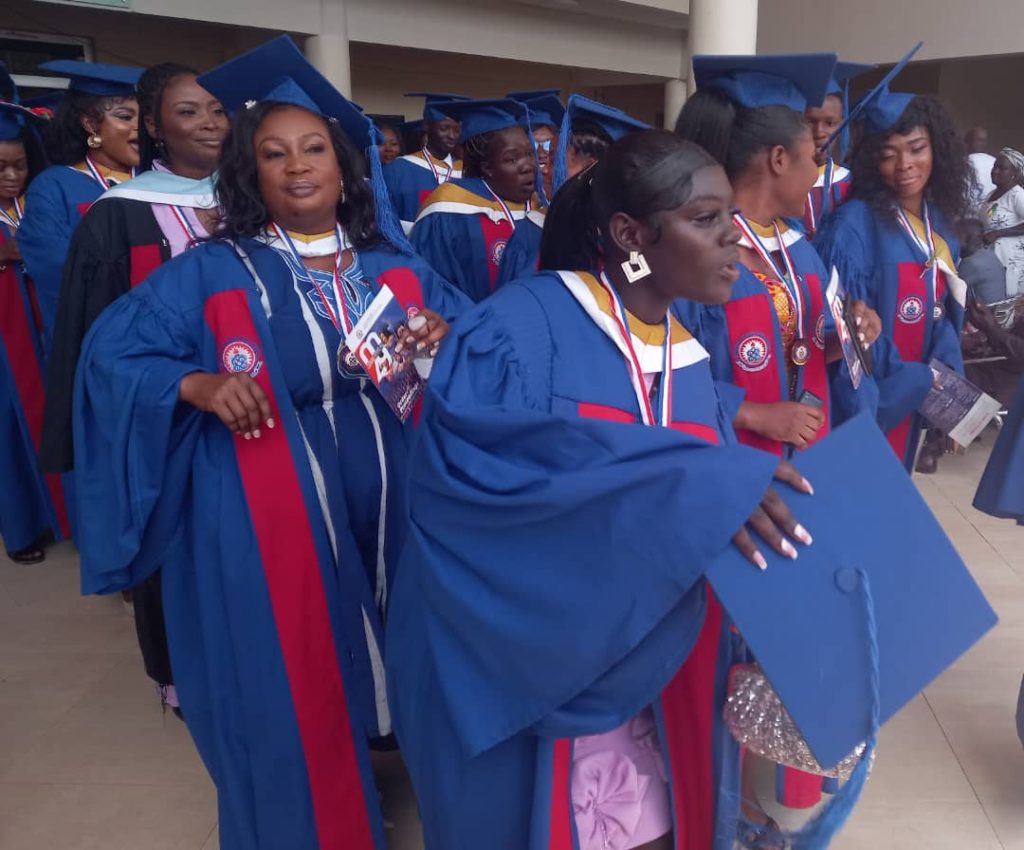By J.K. Nabary
Winneba (C/R), Dec 23, GNA – The University of Education, Winneba has invested hugely in developmental projects to strengthen the University’s academic and research capabilities and enhance teaching and learning.
These are the construction of new study centres at Cape Coast, Kumasi, Koforidua-kukurantumi, University Hospital and faculty Block at Àjumako Campus and Ghana Universal Senior Secondary School (GUSSS), Hostels at sites one and three, Winneba, among others.
Prof Stephen Jobson Mitchual, the Vice Chancellor, made this known at the climax of the 29th Congregation on Saturday where students graduated from the School of Graduate Studies, and School of Creative Arts and Distance Education centres at Sekondi, Sogakope, Sunyani, Twene Amanfo Senior High School, Tamale (Batco), Tamale (Nobisco) and Tarkwa Techiman.
The graduation ceremony, which commenced on December 17 at the North Campus of the University at Winneba, had a total of 9,575 students from the main campus and its study centres being awarded degrees, diplomas and certificates.
He said the University had made significant strides in Information and Communication Technology infrastructure, advancing its Smart Campus agenda to enhance academic, administrative and healthcare operations.
The construction of a state-of-the-art data centre is underway to improve data security, reliability and scalability as well as key modules for an Enterprise Resource Planning (ERP) system, including admissions and student information management.
Other transformative systems, Prof Mitchual said, included the enhancement of hospital management system, which had revolutionised healthcare delivery at the university clinic by reducing patients waiting time and cost.

The rest are platforms for alumni engagement, hall reservations, internship tracking, help-desk support, transcript request and automated clearance.
“Collectively these advancements position the university as a leader in delivering quality education, student support, improve efficiency and service delivery and makes it a leader in leveraging technology for institutional excellence,” he said.
The Global Center on Biodiversity for Climate Change sponsored the Integrated Land and Water management of Greater Amansule Wetland System to develop tools for conserving wetland biodiversity and enhance resilience for sustainable livelihoods.
Prof Mitchual said the ‘Improving Teachers and Students Professional Development with Twin Transition in Sub-Saharan Africa’ project was funded by ERASMUS-Edu, to train teachers, develop a comprehensive handbook for African countries and foster cross-cultural exchanges.
He mentioned Carbon Credit for Mangrove Farmers, a pilot study project, funded by Ocean Risk and Resilience Action Alliance, to explore carbon credit opportunities for Mangrove formers in Ghana’s Volta Estuary.
“This is essential to enable the introduction if other impactful high-demand programmes to respond to the realities of the time.”
GNA